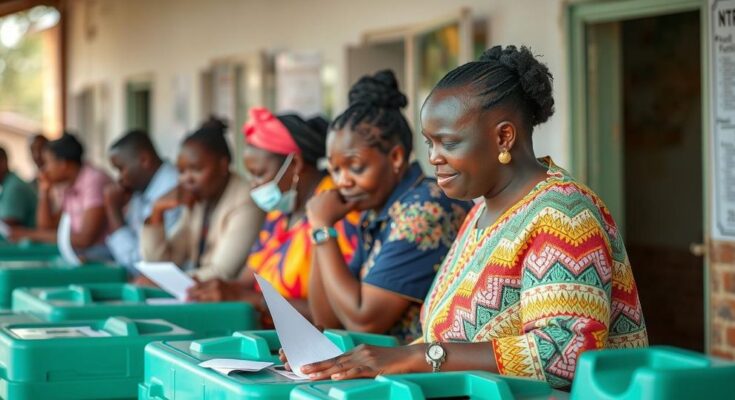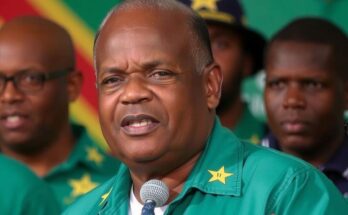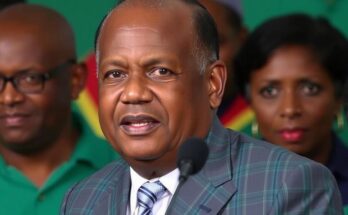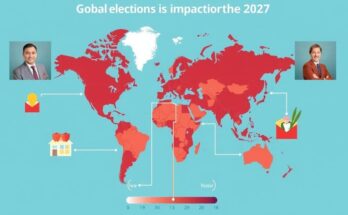Ghana’s presidential and legislative elections have commenced amid a severe economic crisis, with 18.7 million registered voters participating. Vice President Mahamudu Bawumia of the NPP faces off against former President John Dramani Mahama of the NDC in a predominantly two-horse race. Economic challenges, including soaring inflation and rising unemployment, dominate the electoral landscape, raising concerns about the country’s democratic stability and the candidates’ ability to address pressing issues.
Polling stations opened in Ghana on Saturday for presidential and legislative elections, amidst one of the most significant economic crises the country has faced in recent history. Approximately 18.7 million registered voters are participating in this election, characterized as a crucial test of the nation’s democracy—a stark contrast to Ghana’s once-celebrated status as a model of democratic stability in West Africa. The two primary candidates, Vice President Mahamudu Bawumia of the ruling New Patriotic Party (NPP) and former President John Dramani Mahama of the National Democratic Congress (NDC), both face criticism for their inability to address the public’s pressing concerns regarding economic hardship.
Historically, Ghana was recognized for its peaceful transfers of power; however, it is now grappling with surging inflation and rising unemployment. An Afrobarometer survey indicated that 82% of Ghanaians believe the country is on the wrong path. Although a total of 12 candidates are vying for the presidency, the election remains predominantly a contest between Bawumia and Mahama, reflecting similar party platforms with minor distinctions.
On this election day, 276 parliamentary members will also be elected, with both NPP and NDC currently holding equal stakes in the legislature. In their final campaign rallies, Bawumia focused on continuing the existing administration’s economic stabilization efforts, while Mahama stressed the need for a comprehensive ‘reset’ across various sectors of governance.
Despite the election atmosphere marked by enthusiasm and vibrant displays of political activity in the capital, deep-seated worries about the economy loom large. Ghana’s economy has suffered significantly, demonstrated by a missed debt repayment last year, an inflation rate of 54% at the year’s end, and concerns surrounding illegal gold mining, commonly referred to as “galamsey,” which exacerbates environmental degradation and reflects the desperation among many citizens seeking employment opportunities.
The current general election in Ghana is occurring during a severe economic crisis, marking a stark shift from the country’s previously stable democratic status. In the past, Ghana was deemed a bastion of democracy in West Africa, successfully navigating a series of peaceful elections since transitioning to multiparty politics in 1992. However, escalating inflation and job scarcity have recently undermined public confidence in political leadership. The elections are significant as they may reflect the public’s response to economic distress, as well as the performance of the ruling NPP and the opposition under the NDC. The historical context emphasizes Ghana’s vital role as an economic powerhouse in the region, now marred by economic challenges that threaten its democratic foundation.
In summary, Ghana’s general election offers a critical evaluation of the nation’s democratic resilience in the face of economic turmoil. With Vice President Bawumia and former President Mahama as leading candidates, voters are concerned about the apparent lack of substantial differences in their proposed solutions to the country’s economic crisis. As the election unfolds, the implications for governance, economic management, and public trust in leadership remain at the forefront, highlighting the significance of this electoral moment in Ghana’s history.
Original Source: www.newsday.com




